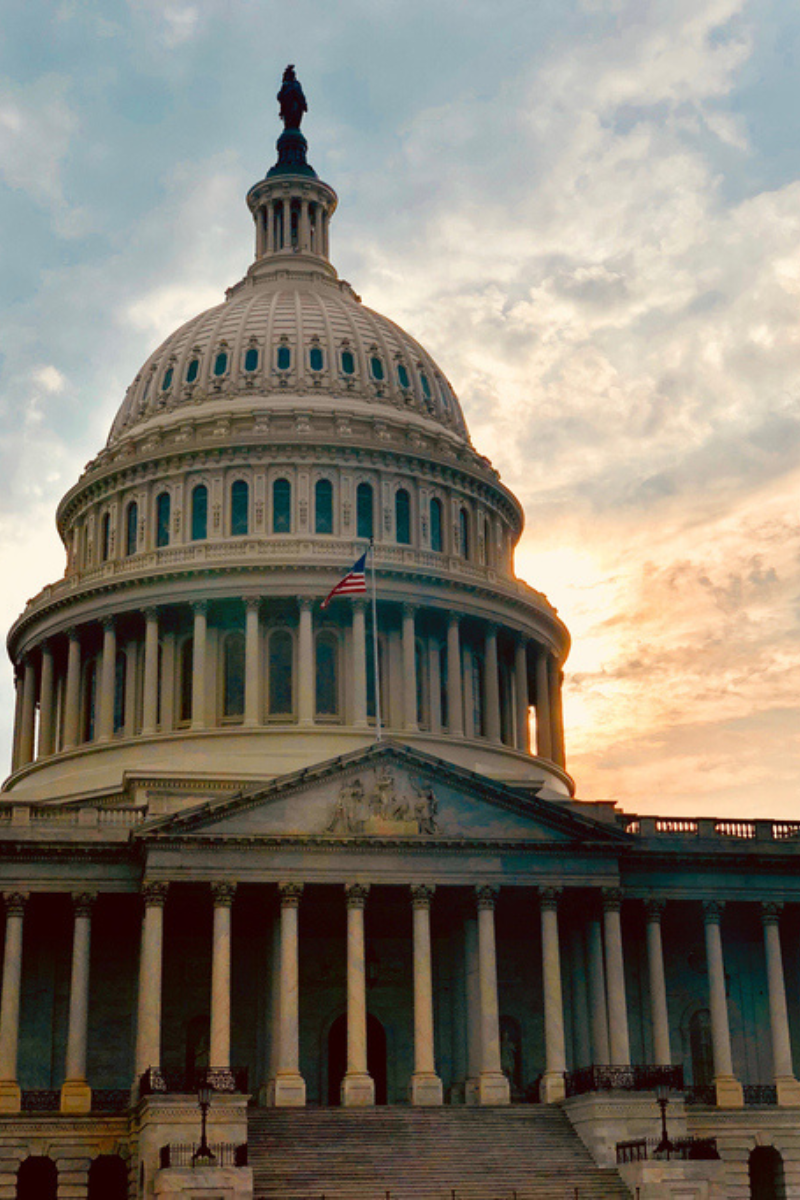There are more than 19,000 cryptocurrencies, almost 600 crypto exchanges and a market cap hovering around one trillion dollars. The average daily cryptocurrency trade volume has risen dramatically to $67 billion per day over the past decade. And roughly 16 percent of the American population – a figure growing exponentially – uses cryptocurrency.
The enchanting world of earning a keep while cutting out big government naturally concerns big government – and the race to regulate the burgeoning industry is hotter than ever. So, where do things currently stand?
Unlike hard cash, cryptocurrencies are neither disseminated nor supported by the United States government, a single entity, or a central bank. There are no physical coins or tokens, but much like the exchange of those familiar green bills, transactions are undisclosed. Instead, one’s wealth lives in a digital wallet shrouded by encrypted information, often called “public” or “private keys”, used for exchanges, and recorded in a virtual public ledger termed the “blockchain.” Miners worldwide invest in specially designed computer hardware to swiftly handle calculations and verify each transaction which adds to the blockchain and generates a reward in the form of digital currency.
In early March, President Biden signed a much-anticipated executive order on “Ensuring Responsible Development of Digital Assets,” designed to provide a, “whole-of-government approach to addressing the risks and harnessing the potential benefits of digital assets and their underlying technology.” In essence, the decree acknowledges the need to form a regulatory framework for digital assets and the prospect of the U.S. creating its own government cryptocurrency – something more than 10 countries, including China, have already rolled out or are in the final stages of doing so.

Nonetheless, there are many hurdles to overcome before Washington can put its foot firmly in the crypto fray.
The Securities and Exchanges Commission (SEC) and the Commodity Futures Trading Commission (CFTC) have recently enacted several crypto-centered administrative actions. In addition, Treasury Secretary Janet Yellen has pressured Congress to pass a slate of sweeping regulations focused on “stablecoins”, defined as cryptocurrencies whereby the value is tied to that of another government-backed currency, commodity, or financial instrument. Stablecoins aim to provide an alternative to the high volatility of the most popular cryptocurrencies, including Bitcoin (BTC), which has made such investments less suitable for wide use in everyday transactions.
However, one of the biggest roadblocks on the road to right-sized regulation is that opinions differ on how crypto should be classified. Some say they are akin to traditional securities while others contend they are closer to commodities, and a third group has emerged calling for a new category altogether.
Bottomline, how cryptocurrencies are designated directly impacts who oversees their governance.
If it’s a security, it falls into the clutches of the SEC. Reigning chair and prominent crypto critic Gary Gensler has referred to the emerging new arena as the “wild west” due to its lack of oversight. In May, the SEC announced the 50-person bolstering of a newly renamed “Crypto Assets and Cyber Unit” (previously called the Cyber Unit) in the Division of Enforcement, specifically focused on policing, “wrongdoing in the crypto markets while continuing to identify disclosure and controls issues with respect to cybersecurity.”
Gensler has maintained that the financial regulations in place today are firm and relevant enough to cover the crypto market. Yet critics contend it is hardly applicable as these were developed nine decades ago.
Alternatively, other analysts view crypto as more of a commodity, like wheat or oil, which would then come under the canopy of the Commodity Futures Trading Commission (CFTC).
While this debate rages on, a number of bills are making their way through Washington in a bipartisan effort to seize control the issue and frame the political narrative.
More than 50 bills and resolutions have been brought to the 118th Congress impacting the crypto space, ranging from matters surrounding consumer protection, foreign relations, and monetary policy to blockchain technology and implications involving China and Russia limitations, in addition to a bevy of draft resolutions yet to be introduced.
In terms of what has already passed, H.R. 3684, the “Infrastructure Investment and Jobs Act” was signed into public law in November and contained three pages outlining new reporting obligations for particular cryptocurrency transactions that have next to nothing to do with the investments of physical infrastructure. Nevertheless, they could have significant ramifications for U.S. consumers and businesses incorporating crypto into their models for transparency and efficiency purposes.
The Act – while subject to interpretation – could require businesses to collect and report new types of information about crypto purchases to the Internal Revenue Service (IRS) or face civil and criminal penalties, thus raising red flags over the industry’s central tenants of decentralized and private wallet exchanges.
As the political winds shift in lead up to the 2022 midterm elections, crypto connoisseurs have their eyes on The Blockchain Regulatory Certainty Act (H.R. 5045), which, “exempts from certain financial reporting and licensing requirements blockchain developers and providers of blockchain services that do not take control of consumer funds” as well as the “Responsible Financial Innovation Act” introduced by U.S. Senators Kirsten Gillibrand (D-NY) and Cynthia Lummis (R-WY).
The bipartisan legislation seeks to, “create a complete regulatory framework for digital assets that encourages responsible financial innovation, flexibility, transparency and robust consumer protections while integrating digital assets into existing law.”
This includes tax requirements for various digital assets and institutes stricter requirements for stablecoins. Further, the Act contains a range of provisions about cybersecurity, the potential creation of a self-regulatory organization, and various disclosure requirements.
Notably, the bill – which has been referred to the Senate Committee on Finance but is still a long way from becoming law – proposes the CFTC be the main comptroller of the crypto world. Senator Gillibrand also happens to be a member of the Senate Agriculture Committee, which oversees the CFTC.
Ultimately, the bill could end up fragmented and passed through different committees relevant to the bill’s section wording. As a result, observers anticipate it has little chance of passing the present Congress as it currently stands.
But just how regulated and monitored the cryptocurrency industry should be remains questionable.
On the one hand, experts argue regulation can be good for stability in a buoyant field and can safeguard long-term investment from fraud, as well as encourage more people to join the digital frenzy.
Conversely, many devotees resist stringent regulation out of concern it will cripple innovation and run afoul of the decentralized nature of the blockchain technology that makes cryptocurrencies possible.
In addition to the debate on a federal level, states have addressed digital assets in their respective 2022 legislative sessions on varying levels. Some 37 states have enacted new legislation. Washington and West Virginia updated their unclaimed property laws to include virtual currencies. South Dakota requires a licensee transmitting virtual currencies shall hold like-kind virtual currencies of the same volume as that held by the licensee.
Wyoming now allows for the purchase of lottery tickets with virtual currency as specified.
Several states also have pending crypto-related bills. For example, Arizona’s SB 1383, “relates to dissolution of marriage; and includes cryptocurrency in definition of liquid assets,” and California’s SB 1275, “authorizes a state agency to accept cryptocurrency as a method of payment for the provision of government services.”
Overall, analysts deem Wyoming, Kentucky, and Texas to be the most “crypto-friendly” states. For example, Wyoming doesn’t collect any personal or corporate income tax, has developed favorable regulatory frameworks surrounding digital assets and boasts a tax exemption for mining equipment if the buyer has dug up more than $5 million in coins.
Moreover, Kentucky exults a flat personal income tax rate of 5 percent and between 4 and 6 percent on business. Leaders endeavor to attract more miners by offering clean-energy-centered tax breaks for those who invest more than $1 million in equipment. Then there is Texas, which in addition to implementing no personal tax and inexpensive electricity, offers a 10-year tax abatement, sales tax exemptions, and workforce training for large-scale mining operations.
California, Nevada, Florida, New Jersey, Colorado, Oregon, and Kansas are also emerging as crypto hotspots as the market expands.
In terms of least friendly, the broad consensus points to New York, which has strict regulations and in June passed the nation’s first two-year, limited moratorium on digital currency mining at fossil fuel power plants. As a result of their more hostile regulatory policies, Rhode Island, Hawaii, and Arizona are also considered states crypto enthusiasts should generally avoid.
Still, it is only a matter of when – not if – cooks get something on the books. Cryptocurrency isn’t going anywhere anytime soon, and as a frontier of opportunity, Washington should not want to close its ears and eyes nor pick winners and losers.






